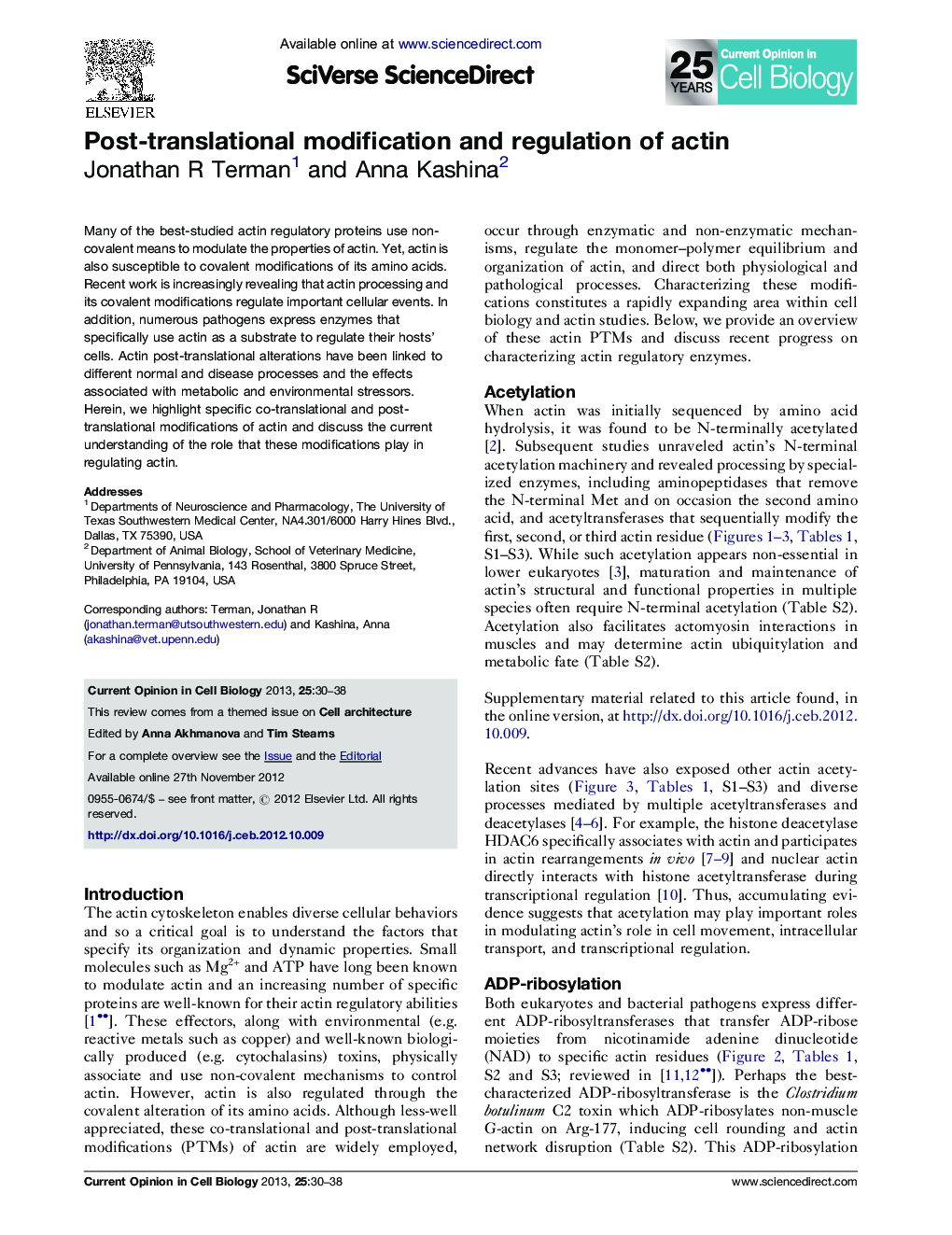| Article ID | Journal | Published Year | Pages | File Type |
|---|---|---|---|---|
| 10929161 | Current Opinion in Cell Biology | 2013 | 9 Pages |
Abstract
Many of the best-studied actin regulatory proteins use non-covalent means to modulate the properties of actin. Yet, actin is also susceptible to covalent modifications of its amino acids. Recent work is increasingly revealing that actin processing and its covalent modifications regulate important cellular events. In addition, numerous pathogens express enzymes that specifically use actin as a substrate to regulate their hosts' cells. Actin post-translational alterations have been linked to different normal and disease processes and the effects associated with metabolic and environmental stressors. Herein, we highlight specific co-translational and post-translational modifications of actin and discuss the current understanding of the role that these modifications play in regulating actin.
Related Topics
Life Sciences
Biochemistry, Genetics and Molecular Biology
Cell Biology
Authors
Jonathan R Terman, Anna Kashina,
